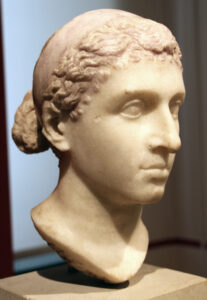Quotes from Pensées, by Blaise Pascal.

“Knowing God without knowing our own wretchedness makes for pride.
“Knowing our own wretchedness without knowing God makes for despair.
“Knowing Jesus Christ strikes the balance because he shows us both God and our own wretchedness.”
“God wishes to move the will rather than the mind. Perfect clarity would help the mind and harm the will.”
“What Plato had not been able to make a few chosen and highly educated men believe, a secret force made hundreds of thousands of ignorant men believe by the power of a few words.”
“If [Plato and Aristotle] wrote about politics it was as if to lay down rules for a madhouse.”
“Fear not, provided you are afraid, but if you are not afraid, be fearful.”
“Scripture has provided passages to bring comfort to every condition and fear to every condition.”
“There are only two kinds of men: the righteous who think they are sinners and the sinners who think they are righteous.”
“People almost invariably arrive at their beliefs not on the basis of proof but on the basis of what they find attractive.”
“If our condition were truly happy we should not need to divert ourselves from thinking about it.”
“Since losing his true good, man is capable of seeing it in anything, even his own destruction, although it is so contrary at once to God, to reason and to nature.”
“The sole object of Scripture is charity.”

“All Jesus did was to teach men that they loved themselves, that they were slaves, blind, sick, unhappy and sinful, and that he had to deliver, enlighten, sanctify and heal them, that this would be achieved by men hating themselves and following him through his misery and death on the Cross.”
“Instead of complaining that God has hidden himself, you will give him thanks for revealing himself as much as he has, and you will thank him too for not revealing himself to wise men full of pride and unworthy of knowing so holy a God.”
“If man was not made for God, why is he only happy in God? If man was made for God, why is he so opposed to God?”
“We have an incapacity for proving anything which no amount of dogmatism can overcome.
“We have an idea of truth which no amount of skepticism can overcome.”
“Cleopatra’s nose: if it had been shorter the whole face of the earth would have been different.”
Pascal has great scorn for people such as these: “As for those who live without either knowing or seeking [God], they consider it so little worth while to take trouble over themselves that they are not worthy of other people’s trouble, and it takes all the charity of that religion they despise not to despise them to the point of abandoning them to their folly.”
“How can we have anything but respect for a religion which knows man’s faults so well? What desire but that a religion which promises such desirable remedies should be true?”
“Man’s sensitivity to little things and insensitivity to the greatest things are marks of a strange disorder.”
“If you want people to think well of you, do not speak well of yourself.”
“The history of the Church should properly be called the history of truth.”
A moving description of what it means to live as a Christian: “I marvel at an original and august religion, wholly divine in its authority, its longevity, its perpetuity, its morality, its conduct, its doctrine, its effects.
“Thus I stretch out my arms to my Saviour, who, after being foretold for four thousand years, came on earth to die and suffer for me at at the time and in the circumstances foretold. By his grace I peaceably await death, in the hope of being eternally united to him, and meanwhile I live joyfully, whether in the blessings which he is pleased to bestow on me or in the afflictions he sends me for my own good and taught me how to endure by his example.”
“It is no doubt an evil to be full of faults, but it is a still greater evil to be full of them and unwilling to recognize them, since this entails the further evil of deliberate self-delusion.”
“Thus human life is nothing but a perpetual illusion; there is nothing but mutual deception and flattery. No one talks about us in our presence as he would in our absence. ”
